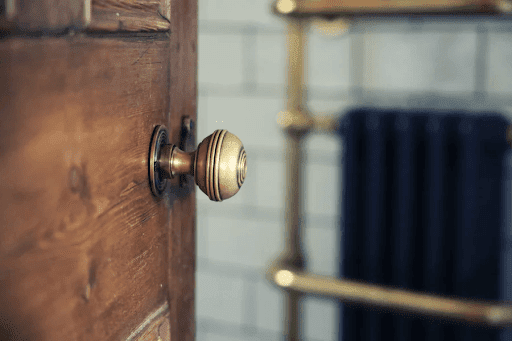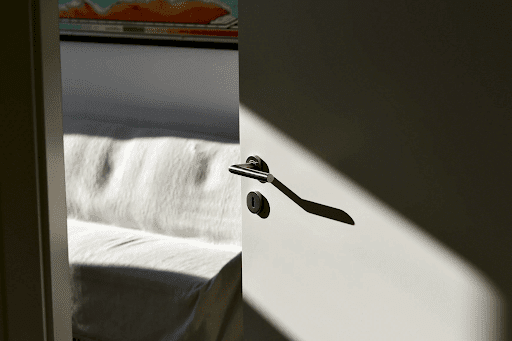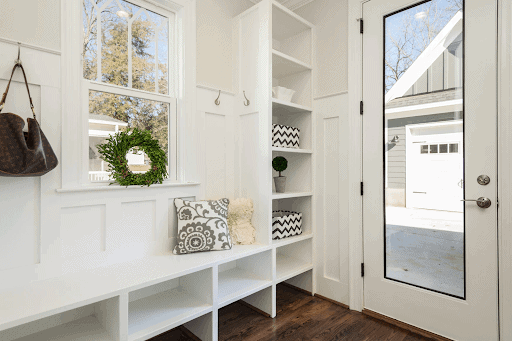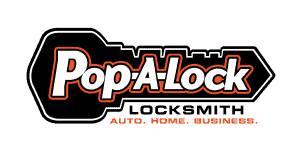We use residential locks everyday – when we leave the house, come home, and when we’re inside to help keep ourselves and our family safe. Most people, however, may not even be familiar with what these locks are called and how they operate. Find the best fit for your home by reading more about each type of lock below.

Doorknob
The doorknob is the most common type of lock and is usually found on the front entrance to a home. These locks are composed of either a single cylinder or double cylinder. The cylinder is the part of the lock where the key goes in. A single-cylinder means that the door can only be unlocked from the outside. On the inside, you’ll find a knob which you can twist to lock the door. Double cylinder door knobs can be locked with a key from either side, and are more common in residential spaces, where locking from the inside is only permitted by those with a key.
To increase security, these kinds of doors can be paired with a deadbolt or a spring bolt. A doorknob with a deadbolt is a great option for most homeowners. Deadbolts typically help to provide the highest level of protection from the outside world, and the doorknob is a classic lock to pair with it.
Handsets
Handsets are another common lock for a front door entrance; they are, however, a bit more stylish than the typical doorknob. Similar to the doorknob, these locks can also be equipped with either a single or double cylinder. In residential homes, handsets are usually equipped with a single-cylinder and can be locked from the inside by twisting a knob.
Unlike a doorknob, these locks are typically paired with a deadbolt, rather than a spring bolt, for additional security. Spring bolts work by compressing when the key is in the cylinder to unlock the door. Once the door is closed, the spring automatically jumps back. A deadbolt is manually locked when you are inside your home, to add additional securement from break-ins and even severe weather. Deadbolts are much more secure than a spring bolt, which is why most residential and commercial spaces opt for this kind of lock.
A handset is a great option for homeowners who want a more stylish option than the classic doorknob. They’re just as secure, but have a bit more curb appeal.

Hand Levers
Hand levers are another form of common residential lock, but don’t provide as much security as the doorknob or handset. For this reason, you’ll usually find them inside the home for doors to bedrooms, closets, or bathrooms. Hand levels are almost always single-cylinder locks. This is because they’re used inside the home, where locking is necessary for privacy rather than for security. The handle feature makes these doors easy to open when lugging in groceries, shopping bags, or other goods around the home.
Hand levers are a great alternative to classic door knobs inside the house. They are easier to open than a door knob, especially when your hands are full. They are also more stylish than the typical door handle.
Electronic Locks
Electronic locks are the middle option between traditional and smart locks. They usually have an electronic keypad that prompts the owner to type a passcode to unlock the door. They also have a keyhole as a backup if the electronic portion runs out of battery, or if you can’t remember your passcode. Fortunately, most electronic locks will remain charged for about 3-5 years, as unlocking takes up very minimal battery. Some are even solar-powered!
Electronic locks are great for any homeowner, particularly those who don’t want to carry around keys. They’re also perfect for larger families, so kids can get in and out of the house without worrying about losing a house key. After all, a lost key can mean an unwanted security risk!
Smart Locks
Smart locks allow you to use your phone to unlock your home. Some operate with Wi-Fi, others a Bluetooth connection. If your lock operates on Wi-Fi, you can adjust your locks wherever you are, as long as your phone has a wireless connection. This feature is perfect for anyone who drives to work and wonders, “Did I lock the front door this morning?”
Smart locks are ideal for any homeowner, since they require a personal phone to get into the house. If you’re forgetful about locking your door, you’ll love having a smart lock and the opportunity to check, double-check, or even triple-check your locks from any location.

Now that you know a little more about residential locks, it’s time for an upgrade! By understanding how each lock works and the benefit of each, you’ll feel more confident about your choice. Whenever you’re ready to change the locks on your home, Pop-A-Lock is on standby. Learn more about our residential locking services on our website. After all, your safety is our number one priority!


